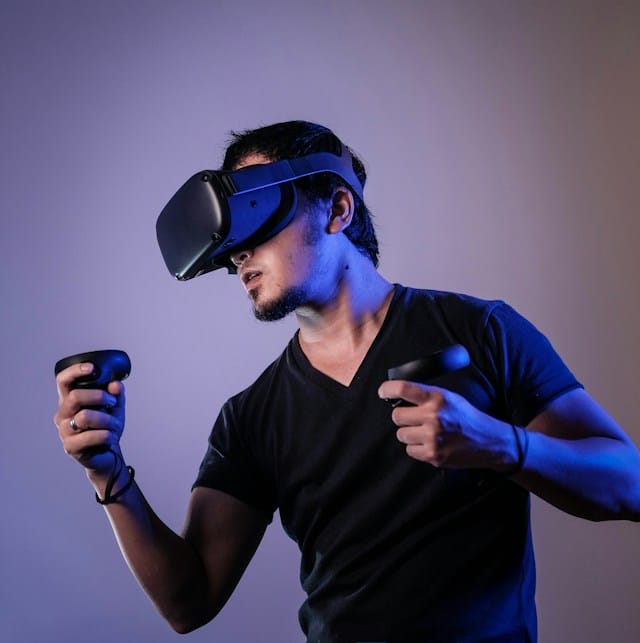In an era where everything is going digital, the field of mental health is no exception. Artificial intelligence (AI) is making its way into mental healthcare, providing a novel way to support those suffering from mental health conditions. AI-powered virtual therapists, also known as chatbots, are on the rise, offering a range of therapeutic services to users. This article delves into the potential of these virtual therapists, and how they could reshape the field of mental healthcare.
The Rise of AI-Powered Virtual Therapists
The past decade has seen a burgeoning interest in AI and machine learning within various sectors, health care being one of them. Seeking to leverage technology’s potential, mental health professionals are exploring the use of AI-powered virtual therapists or chatbots to provide support to patients.
A voir aussi : How to strengthen the efficiency of your HR human resources using intelligent chatbots ?
Chatbots are essentially apps designed to interact with users in a natural language, mimicking human conversation. These bots are programmed to provide immediate responses, making them accessible anytime and anywhere. This is especially beneficial for those who may have trouble accessing a human therapist due to geographical limitations or financial constraints. Moreover, the anonymity provided by these bots may also help users who feel uncomfortable discussing their issues face-to-face.
The inner workings of these chatbots rely on complex algorithms and machine learning techniques. They analyze user’s inputs, draw from a vast database of therapeutic techniques, and provide relevant feedback. The more a user interacts with a chatbot, the better it becomes at understanding and responding to their needs.
En parallèle : The ethics of autonomous vehicles in emergency situations
Benefits of AI-Powered Virtual Therapists
AI-powered virtual therapists have several potential benefits. They can provide immediate, round-the-clock mental health support. This ability to provide help anytime, anywhere is particularly valuable in this busy, 24/7 world where it can be challenging to schedule face-to-face sessions with therapists.
These AI therapists can also offer a level of anonymity that traditional therapy might not. For those who may feel stigmatized or uncomfortable discussing mental health issues, this can be a significant advantage.
AI-powered chatbots can also help bridge the gap in mental healthcare, where demand often exceeds supply. According to Google Scholar and PubMed Crossref data, therapists are often overworked and struggle to meet the needs of every patient. Chatbots can alleviate some of this pressure, allowing therapists to better focus on patients who require more intensive care.
Lastly, these virtual therapists can collect and analyze users’ data, providing healthcare professionals with valuable insights into their patients’ mental health. This use of data could potentially revolutionize the way mental health conditions are diagnosed and treated.
Limitations and Ethical Considerations
While AI-powered virtual therapists have significant potential, they also come with limitations that need to be addressed. One of the major concerns is the chatbots’ ability to accurately interpret and respond to users’ emotional states. While AI has come a long way, it still lacks the deep emotional understanding that human therapists possess.
Ethically, there’s also the question of data privacy. As these chatbots collect and analyze user data, there’s always the risk of data breaches. It is paramount to establish stringent security measures to ensure user data’s confidentiality and safety.
Another ethical concern is the risk of patients becoming overly reliant on these bots, possibly neglecting necessary human interaction. It is crucial to remember that chatbots should not replace human therapists but rather serve as a supplementary tool.
Despite these limitations and ethical issues, the benefits of AI-powered virtual therapists cannot be overlooked. With ongoing research, it is likely that these issues will be addressed, paving the way for an enhanced mental healthcare system.
Conclusion
AI-powered virtual therapists herald a new era in mental healthcare. By providing round-the-clock support and valuable data insights, they have the potential to revolutionize mental health therapy. However, it is crucial to continue discussing and addressing the limitations and ethical considerations that come with the use of AI in mental healthcare.
The rise of AI-powered virtual therapists signals a shift towards a more accessible, data-driven approach to mental health. As research continues, the potential of these AI bots will only grow. They might not replace human therapists, but they will undoubtedly complement them, providing a holistic, multi-faceted approach to mental health treatment. This is a significant leap forward in making mental healthcare more accessible and efficient for all.






